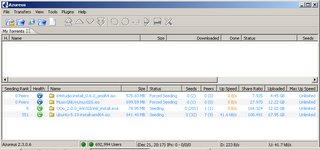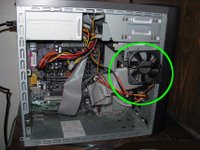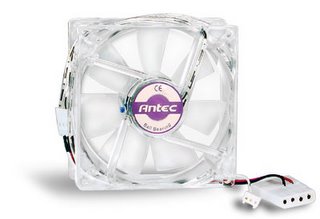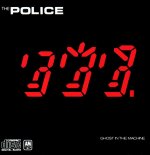 Certainly nice to see this support from the community at large--all of us who benefit the most from their worthwhile efforts. Now, hopefully the IRS will leave them alone...
Certainly nice to see this support from the community at large--all of us who benefit the most from their worthwhile efforts. Now, hopefully the IRS will leave them alone...Wishing a Happy & Safe New Year to all!
Technology, Linux, Open Source Software, Guitars, Music, Recording, and of course lots of opinion.
 Certainly nice to see this support from the community at large--all of us who benefit the most from their worthwhile efforts. Now, hopefully the IRS will leave them alone...
Certainly nice to see this support from the community at large--all of us who benefit the most from their worthwhile efforts. Now, hopefully the IRS will leave them alone...Software developer, Philip Copeman, is looking for programmers to build a Linux version of the popular windows-based open source accounting software, Turbocash... The Linux version of Turbocash will have to be re-developed from the ground up... "The database will most likely be Firebird or MySQL," says Copeman. [He] says there are no real Linux competitors in the SME (small to medium-sized enterprise) end of the [accounting software] market... "We estimate that a million users would change to a Linux system if they had the choice." --TECTONICComparison chart can be found here.
One of the most common questions... is "How does Google decide what result goes at the top of the list?" Here, from quality engineer Matt Cutts, is a quick primer on how we crawl and index the web and then rank search results...Tags: Google
You can use rBuilder Online to create a Linux distribution that meets your specific needs, or to find an existing distribution that is just right for you.Found this on Digg today. I haven't tried it yet but it's definitely on the TO-DO list! If it lives up to it's claims this is going to be one popular utility!
Use rBuilder Online's collaborative development environment to package open source software and produce complete distributions.
Bittorrent? by boatboyPiracy via P2P fileswapping is going to kill off quality media productions. Those who engage in such activities really are ruining it for the rest of us. The myth that this illegal activity is somehow a victimless crime has been busted...
Your show is available on bittorrent networks to download and watch when/where it's more convenient. Some users, however, could download the show without paying for it via cable service. How do you personally feel about this? (Cheated\Angry\Flattered\What's A Bittorrent?)
JAMIE HYNEMAN -- There will likely always be a certain amount of this kind of opportunism, and I suppose it will be self regulating to some degree. If there is too much, then quality programming will be reduced, and there will be nothing to steal. Other similar ways of avoiding commercials are also having this effect, and companies like mine are going to go out of business because the advertising revenues are being cut. Somebody has to pay for good programming, and if you cut out all the ads, and cut out the cable revenues, then you will end up with nothing but the kind of programming that is on public access stations, which is fine if that is what you happen to like, but limiting and a bit of a waste for a medium that is as powerful as TV.
ADAM SAVAGE -- Personally, I cannot condone the downloading of copyrighted work without the permission of the copyright holder. That being said, I look forward to a future where such a thing will be possible, and encouraged, and conducted in such a way that properly takes care of the needs of the artists, the distributors, AND the end users. We're not there yet, but Creative Commons is a step in the right direction to be sure.

-6 -o %2 -T "artist=%a" -T "title=%t" -T "album=%b" -T "date=%y" -T "tracknumber=%tn" -T "genre=%g" -> I never really understood what the big deal was when everyone was downloading 128k MP3's. How could media companies have ever felt threatened by that noise?At any rate, I would suggest following the procedure above. If you have the HDD space: rip your CDs to FLAC first and then use command-line tools to batch convert those FLAC files into whatever lossy format you need for your devices. Here is a shell script that looks like it would do the trick quite well (but I haven't tried it myself yet)...Because most people aren't pretentious audiophiles, and are quite happy to listen to 128kbps MP3s through the crappy speakers that came with their Gateway box.
Cool! I've always wanted to be a pretentious audiophile! This is a great day! I just wish I had the gear to go along with such an ostentatious title. [sigh]
The treble washout at 128kbps is often times just too much. Have you ever tried to make an audio CD from 128k MP3s? It will generally turn out to be hideous. That's not always the case. I made one from the Brad Sucks: I Don't Know What I'm Doing album and it rocks! Guess I'm not as picky as you would imply--though others would be, for sure. Still you don't have to have a golden ear to be disturbed with lower bitrate MP3s, even on crappy Gateway speakers...
Listening to low quality MP3s can be kind of comparable to the Uncanny Valley effect some people experience when they see photorealistic CG images of humans . They can look really cool but still creep you out at the same time...
Cell is an architecture for high performance distributed computing... According to IBM the Cell performs 10x faster than existing CPUs on many applications... The Cell architecture can go further though, there's no reason why your system can't distribute software Cells over a network or even all over the world. The Cell is designed to fit into everything from (eventually) PDAs up to servers so you can make an ad-hoc Cell computer out of completely different systems.
64 Studio is a collection of software for digital content creation on x86_64 hardware (that's AMD's 64-bit CPUs and Intel's EM64T chips). It's based on the pure 64 port of Debian GNU/Linux, but with a specialised package selection and lots of other customisations. It will be marketed to hardware OEMs in the creative workstation and laptop markets as an alternative to the 64-bit version of Windows XP, or OS X on Apple hardware.
 Early U2...
Early U2... The only place to secure a second drive in the case is right next to the first (unless I could scrounge up some mounting rails and put it in one of the optical drive slots). This was not going to work. The heat coming off of these two drives was bad. Until I can find a suitable replacement case, I rigged a fan to blow air in the gap between the two drives. It seems to be working well, but it's definitely an ugly hack especially since I have to leave the cover off. The drives however went from blazing hot to barely warm. The sensors command was returning some way out voltages so I quickly swapped out the PS with the Antec. It's still showing high on the 3.3v rail but it might be something in the config, I don't know yet. I have every peripheral unplugged in the box. No FDD, no optical drives--the PS is running the two HDDs, the system board, a generic RealTek-based PCI 10/100 NIC and the fan for the drives. That's it. The image shown here is an earlier shot, changes have been made:
The only place to secure a second drive in the case is right next to the first (unless I could scrounge up some mounting rails and put it in one of the optical drive slots). This was not going to work. The heat coming off of these two drives was bad. Until I can find a suitable replacement case, I rigged a fan to blow air in the gap between the two drives. It seems to be working well, but it's definitely an ugly hack especially since I have to leave the cover off. The drives however went from blazing hot to barely warm. The sensors command was returning some way out voltages so I quickly swapped out the PS with the Antec. It's still showing high on the 3.3v rail but it might be something in the config, I don't know yet. I have every peripheral unplugged in the box. No FDD, no optical drives--the PS is running the two HDDs, the system board, a generic RealTek-based PCI 10/100 NIC and the fan for the drives. That's it. The image shown here is an earlier shot, changes have been made:Maxtor 120GB (hda)I have manually built Linux software RAID arrays previously, but these days there is no need to do this (thankfully!). You could set it up initially during the installation or run base-config afterwards. Even easier, use apt-get to install Webmin (along with Samba, SWAT, SSH) and use the Partitions on Local Disks & Linux RAID modules under the Hardware tab to configure it. The following are packages I installed (you won't want the first one if you are not using a 32-bit AMD processor):
hda1 / 7.4GB ReiserFS
hda2 ext'd (remaining drive space)
hda5 swap 2GB
hda6 /dev/md0 75GB
hda7 /data2 31GB ReiserFS
Samsung 80GB (hdc)
hdc1 /dev/md0 75GB
RAID1 Array
md0 /data1 75GB ReiserFS
apt-get install linux-image-k7 linux-restricted-modules-k7
apt-get install samba
apt-get install webmin-core
apt-get install webmin-samba
apt-get install webmin-software
apt-get install webmin-smart-status
apt-get install webmin-cpan
apt-get install lvm-common
apt-get install ssh
apt-get install swat
apt-get install sensord
apt-get install mondo
# deb cdrom:[Ubuntu-Server 5.10 _Breezy Badger_ - Release i386 (20051013)]/ breezy main restricted
deb http://us.archive.ubuntu.com/ubuntu breezy main restricted
deb-src http://us.archive.ubuntu.com/ubuntu breezy main restricted
deb http://us.archive.ubuntu.com/ubuntu breezy-updates main restricted
deb-src http://us.archive.ubuntu.com/ubuntu breezy-updates main restricted
## The Universe repository is ENTIRELY UNSUPPORTED by the Ubuntu
## team, and may not be under a free licence.
deb http://us.archive.ubuntu.com/ubuntu breezy universe
deb-src http://us.archive.ubuntu.com/ubuntu breezy universe
deb http://security.ubuntu.com/ubuntu breezy-security main restricted
deb-src http://security.ubuntu.com/ubuntu breezy-security main restricted
deb http://security.ubuntu.com/ubuntu breezy-security universe
deb-src http://security.ubuntu.com/ubuntu breezy-security universe
#
# Sample configuration file for the Samba suite for Debian GNU/Linux.
#
#=============== Global Settings ===============
[global]
log file = /var/log/samba/log.%m
passwd chat = *Enter\snew\sUNIX\spassword:* %n\n *Retype\snew\sUNIX\spassword:* %n\n .
obey pam restrictions = yes
socket options = TCP_NODELAY
encrypt passwords = true
passwd program = /usr/bin/passwd %u
passdb backend = tdbsam guest
dns proxy = no
netbios name = MARSHALL
server string = %h server (Samba, Ubuntu)
invalid users = root
workgroup = WORKGROUP
os level = 20
syslog = 0
security = share
panic action = /usr/share/samba/panic-action %d
max log size = 1000
[homes]
create mask = 0775
comment = Home Directories
directory mask = 0775
browseable = no
writeable = yes
only user = yes
[share]
comment = RAID1 Share
writeable = yes
public = yes
user = username
path = /data1/share
[zeta]
comment = Non-RAID Share
writeable = yes
public = yes
user = username
path = /data2/zeta

 I finally did it after all these years... well, ten anyway.
I finally did it after all these years... well, ten anyway.
The difference between ideas and things is obvious as soon as someone hits you over the head with an idea - so obvious that until recently it was entirely clear to the law. Things could have owners and ideas could not. Yet this simple distinction is being changed all around us. Ideas are increasingly treated as property - as things that have owners who may decide who gets to use them and on what terms...Recent news stories inform us that with pending legislation it is quite apparent that there is much confusion over this issue. Confusion that could lead to furthering bad law, stifling innovation, and further restrictions against consumers.
...This is madness. Ideas aren't things. They're much more valuable than that. Intellectual property - treating some ideas as if they were in some circumstances things that can be owned and traded - is itself no more than an idea that can be copied, modified and improved. It is this process of freely copying them and changing them that has given us the world of material abundance in which we live. If our ideas of intellectual property are wrong, we must change them, improve them and return them to their original purpose. When intellectual property rules diminish the supply of new ideas, they steal from all of us.
You are *totally* blowing this issue out of proportion and mischaracterizing what is 'free' on Magnatune and what's not.First, you better check again because you certainly ARE free to redistribute the music you purchase from Maganatune under the specified CC license. There is NO separate license for the WAV, OGG, or FLAC files as opposed to the MP3/streaming license. It's one and the same.But as you stated, even with the MP3s (that ARE freely & immediately downloadable) you ARE free to strip out the track/artist/title message, use them (non-commercially) & redistribute them according to the terms of the license. What REALLY is the problem? You should have taken this time and space to write about something TRULY threatening like software patents...
The only difference beside bitrate quality between the streamed MP3 files & a purchased set is simply that the 'nagware' message is gone after the purchase.
As to the 'nagware' in the streamed/freely downloadable MP3s, so what? It provides us complete track information: the artist, the album & what track we are listening to. Unless something has changed in the message since the last time I listened to a stream there is NOTHING in there to suggest that you are stealing or a freeloader.
In fact, I actually bought an album BECAUSE of the information in the 'nagware'. I was listening to a compilation set of various artists in a genre and heard an interesting song. Without the 'nagware' message I would not have known who it was that was performing. With the information provided, I listened to more from the particular artist that intrigued me, and I ended up buying one of his albums!
Gee, instead of being evil perhaps this is actually beneficial to all: artist, consumer, and distributor...
Pick your battles. This article amounts to little more then a poorly conceived rant about a total non-issue.
 This is soooo cool! Unfortunate, but cool.
This is soooo cool! Unfortunate, but cool.First, a baseline. When you buy a regular CD, you own it. You do not "license" it. You own it outright. You're allowed to do anything with it you like, so long as you don't violate one of the exclusive rights reserved to the copyright owner. So you can play the CD at your next dinner party (copyright owners get no rights over private performances), you can loan it to a friend (thanks to the "first sale" doctrine), or make a copy for use on your iPod (thanks to "fair use"). Every use that falls outside the limited exclusive rights of the copyright owner belongs to you, the owner of the CD. [Now the Legalese Rootkit: Sony-BMG's EULA]Pretty much what we're used to. Nothing scary, nothing dramatic. You bought it, you get to use it. Well, times they are a changin'...
- If your house gets burgled, you have to delete all your music from your laptop when you get home. That's because the EULA says that your rights to any copies terminate as soon as you no longer possess the original CD.
- You can't keep your music on any computers at work. The EULA only gives you the right to put copies on a "personal home computer system owned by you."
- If you move out of the country, you have to delete all your music. The EULA specifically forbids "export" outside the country where you reside.
- You must install any and all updates, or else lose the music on your computer. The EULA immediately terminates if you fail to install any update. No more holding out on those hobble-ware downgrades masquerading as updates.
- Sony-BMG can install and use backdoors in the copy protection software or media player to "enforce their rights" against you, at any time, without notice. And Sony-BMG disclaims any liability if this "self help" crashes your computer, exposes you to security risks, or any other harm.
- The EULA says Sony-BMG will never be liable to you for more than $5.00. That's right, no matter what happens, you can't even get back what you paid for the CD.
- If you file for bankruptcy, you have to delete all the music on your computer. Seriously.
- You have no right to transfer the music on your computer, even along with the original CD.
- Forget about using the music as a soundtrack for your latest family photo slideshow, or mash-ups, or sampling. The EULA forbids changing, altering, or make derivative works from the music on your computer.
My column was never wrong, my column was questioning...I was saying, "I don't get it, will somebody explain it to me, please?" Yeah, [Larry Lessig] explained it. I finally got my explanation. Sometimes you've got to go public with bafflement, which I do...He's doing fine. You don't need my help.Funny, he sounded pretty certain about his conclusions when I read his original opinion piece on the matter. Judge for yourself...